Dental Trauma
The dentists at Family Dental Group are trained to treat various types of dental trauma. Injuries to the front teeth are very common and by their very nature, impart a high degree of emotional, as well as physical trauma to patients. Injuries include:
- Intra oral lacerations
- Fractured teeth
- Teeth that are moved out of place
- Avulsed (knocked out) teeth
Injuries to the Teeth and Surrounding Dental Structures
Isolated injuries to teeth are quite common. A final restoration of appearance and function after dental trauma may require the expertise of various dental specialists. Teeth that have been displaced or knocked out require repositioning or replacing the tooth in the empty socket.For these types of injuries the affected teeth are held back in place by one of a number of forms of splinting (stabilizing by wiring or bonding teeth together). It may be necessary to have this splint in place for a few weeks while the tooth is healing.
If a tooth is knocked out, this is a true dental emergency. The tooth should be placed in salt water or milk to preserve it. The sooner the tooth is re-inserted into the dental socket, the better chance it will survive. Therefore, the patient should never delay seeing a dentist or oral surgeon as soon as possible. Never attempt to wipe the tooth off, since remnants of the ligament that hold the tooth in the jaw are attached and are vital to the success of replanting the tooth. You can find more information on our website under Dental Emergencies.
Fractured teeth can be restored to a cosmetic result by dentists. Tooth colored composite resin can be used to rebuild a tooth to its form and function.
Wisdom Tooth Problems
The problems involving your wisdom teeth may be caused by the size of your jaw and/or by how crowded your teeth are. Common warning symptoms that there is an un-natural problem in the development of your wisdom teeth could be pain and swelling.
Symptoms can be caused by:
- Infection to the gums
- A crowded tooth displacing neighboring teeth
- A decayed wisdom tooth
- Poorly positioned wisdom tooth
- A cyst around a wisdom tooth that destroys bone
Sometimes wisdom teeth can be removed by a dentist but often a referral to an oral surgeon is indicated.
Tooth Extraction
The extraction of a tooth is required when the tooth has an extensive cavity that is not restorable, or if a tooth is fractured so badly it is not repairable.Additionally, sometimes the cost of restoring a tooth that is causing pain might be unaffordable for the patient, so an extraction is recommended as an option.
Often times when a tooth needs to be extracted, one of the dentists at Family Dental Group will offer to extract the problem tooth in our office. There are some circumstances in which the dentist will instead refer the patient to an oral surgeon for the extraction, such as if the tooth is going to be very difficult to extract, the patient is very nervous, or there are complex medical issues to consider.In these cases, the dentist will explain why this referral is needed.
When a tooth requires extraction, it is important to think about a tooth replacement option. An extracted tooth leaves an open area in the jaw which, in time, can allow the neighboring teeth to drift into the area where the tooth was extracted. This can affect the entire mouth and impact the way your teeth appear and function. At Family Dental Group, our dentists will discuss all of your tooth replacement options.
Also, if you are considering replacing the tooth with an implant in the future, your dentist might refer you to an oral surgeon or periodontist for extraction of the tooth and placement of a bone graft at the time of surgery to preserve the bone width and height. This will make future implant placement more predictable.
After a tooth is extracted there are steps to caring for the surgical site to prevent post extraction complications.
After Tooth Extraction Care
- DO NOT RINSE MOUTH TODAY
Tomorrow rinse mouth gently every 3 to 4 hours (especially after meals) using one quarter teaspoon of salt to a glass of warm water. Continue rinses for several days. - BLEEDING
Following extractions, some bleeding is to be expected. If persistent bleeding occurs, place gauze pads over bleeding area and bite down firmly for one-half hour. Repeat if necessary. - SWELLING
Ice bag or chopped ice wrapped in a towel should be applied to the operated area; one-half hour on, and one-half hour off for 4-5 hours. - PAIN
For mild to average pain, use any non-aspirin type of medication you like. If the doctor prescribes a specific pain medication, follow the instructions and do not mix with other medications unless approved by your doctor. - FOOD
Light diet is advisable during the first 24 hours. - BONY EDGES
Small sharp bone fragments may work up through the gums during healing. These are not roots; if annoying, return to our office for their simple removal. - If any unusual symptoms occur, call the office at once.
- The proper care following oral surgical procedures will hasten recovery and prevent complications.
Post-Surgery Instructions
Fold a piece of clean gauze into a pad thick enough to bite on and place directly on the extraction site. Apply moderate pressure by closing the teeth firmly over the pad. Maintain this pressure for about 30 minutes. If the pad becomes soaked, replace it with a clean one as necessary. Do not suck on the extraction site (as with a straw). A slight amount of blood may leak at the extraction site until a clot forms. However, if heavy bleeding continues, call your dentist. (Remember, though, that a lot of saliva and a little blood can look like a lot of bleeding.)
The Blood Clot
After an extraction, a blood clot forms in the tooth socket. This clot is an important part of the normal healing process. You should therefore avoid activities that might disturb the clot.
Here’s how to protect it:
- Do not smoke, rinse your mouth vigorously or drink through a straw for 24 hours.
- Do not clean the teeth next to the healing tooth socket for the rest of the day. You should, however, brush and floss your other teeth thoroughly. Gently rinse your mouth afterwards..
- Limit strenuous activity for 24 hours after the extraction. This will reduce bleeding and help the blood clot to form. Get plenty of rest.
- If you have sutures, your dentist will instruct you when to return to have them removed.
Medication
Your dentist may prescribe medication to control pain and prevent infection. Use it only as directed. If the medication prescribed does not seem to work for you, do not increase the dosage. Please call your dentist immediately if you have prolonged or severe pain, swelling, bleeding, or fever.
Swelling & Pain
After a tooth is removed, you may have some discomfort and notice some swelling. You can help reduce swelling and pain by applying cold compresses to the face. An ice bag or cold, moist cloth can be used periodically. Ice should be used only for the first day. Apply heat tomorrow if needed. Be sure to follow your doctor’s instructions.
Diet
After the extraction, drink lots of liquids and eat soft, nutritious foods. Avoid alcoholic beverages and hot liquids. Begin eating solid foods the next day or as soon as you can chew comfortably. For about two days, try to chew food on the side opposite the extraction site. If you are troubled by nausea and vomiting, call your dentist for advice.
Rinsing
The day after the extraction, gently rinse your mouth with warm salt water (teaspoon of salt in an 8 oz. glass of warm water). Rinsing after meals is important to keep food particles away from the extraction site. Do not rinse vigorously!
Post-Surgery Instructions for Children
Anesthesia – The feeling of numbness will begin to wear off in 30 minutes to 4 hours. Until that time, avoid all hot foods or liquids, and do not chew. This is to prevent accidentally burning or biting the lips, cheeks, inside of your mouth or tongue until the feeling has returned.
Gauze Pack – Fold the gauze into a small pack and place over the extraction site and apply firm pressure for one to two hours. Change the gauze pack every 15-30 minutes.
Bleeding – It is normal for the extraction site to bleed slightly or ooze blood for 12 to 24 hours following surgery.
Ice Pack – For the first 2 to 8 hours after surgery, ice packs should be applied to the outside of the face over the area of the extraction site. The ice pack should be held in place for 15 minutes on, and then removed for 15 minutes. Doing this throughout the day will help reduce discomfort and swelling.
Medications – DO NOT TAKE ASPIRIN PRODUCTS due to the possible increase in bleeding potential. If prescription medications were prescribed please follow label instructions carefully. For most extractions, a non-aspirin over the counter pain medication will provide good pain relief. Do not take more than the recommended dosage!
Diet – A liquid or soft diet should be adhered to for the first 12 to 24 hours after surgery. It is important to drink plenty of liquids for the first day or two. Avoid the use of a straw as it may dislodge the blood clot that is forming in the extraction site.

